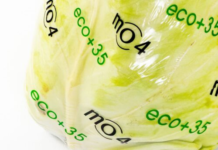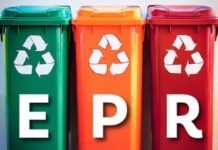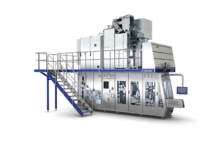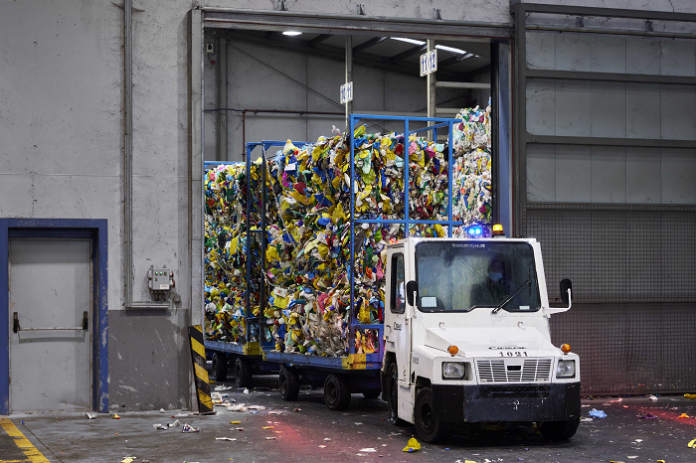
Focusing on a circular economy and in a bid to reduce plastic waste, packaging specialist ALPLA will consolidate all of its recycling activities under a new brand – ALPLArecycling.
The company, which has been investing in building up its own recycling capacities since 2005, operates 13 plants, including four joint ventures with regional partners, and aims to be processing at least 25% post-consumer material (PCR) by 2025.
Also present in Asia, the company has investing millions in new sites in South Africa, Romania and Thailand as well as in a site expansion in Radomsko, Poland.
ALPLA is focusing on mechanical recycling and has invested more than 50 million Euros a year in the global expansion of its activities since 2021. Thanks to the new plants, the expansion of existing facilities, joint ventures and strategic acquisitions, the annual installed and projected output capacity has since doubled to 350,000 tonnes of PCR material.
Together, with the construction of a new facility in South Africa as recently announced and the site expansion in Poland, the annual recycling capacity amounts to 266,000 tonnes of rPET (recycled PET) and 84,000 tonnes of rHDPE (recycled HDPE), the company says.
Around 1.100 ALPLA employees work on recycling. In addition to the production of high-quality rPET and rHDPE at 13 plants, including four joint ventures with regional partners, the company focuses on the development of sustainable packaging solutions with a high proportion of recycled materials, optimum recyclability and low weight.
The growing importance of the recycling sector, strong expansion and increasing demand have now led to the establishment of the ALPLArecycling brand together with its own website, the company says. There, you will find comprehensive information about recycling at ALPLA, the products available and the locations of the recycling plants and joint ventures at a glance.
‘Every year, we are producing more high-quality, affordable and sustainable packaging from used packaging. With our own production, development and material optimisation, we ensure quality and quantity, while also strengthening regional and national recycling loops,’ emphasizes ALPLA CEO Philipp Lehner.
Recycling plastics reduces carbon consumption by up to 90%, reduces waste and creates value and jobs at the sites. Plastic pollution and littering is a major problem worldwide. Research published in the journal Nature Sustainability in 2021 says plastic items from takeaway food and drink dominate the litter in the world’s oceans. The UN says promoting reuse options, including refillable bottles, bulk dispensers, deposit-return schemes, and packaging take-back schemes, can reduce 30% of plastic pollution by 2040.
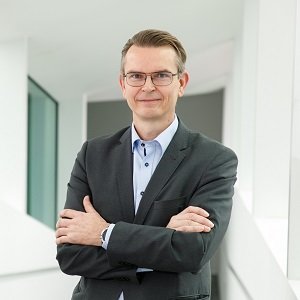
“Our many years of expertise and access to our own materials give our customers a competitive advantage. The new brand is a clear commitment to recycling and to our expansion plans in growth markets,” explains Dietmar Marin, mmanaging director of the Recycling division at ALPLA. In the coming years, the company will intensify its activities in areas such as southern Africa, the Middle East and the Asia-Pacific region. “Interest in sustainable packaging is growing all over the world. We are present as pioneers in all the regions of the world and are already a strong partner for future solutions,” says Marin.
ALPLA currently processes 20%PCR material and aims to increase this to at least 25 per cent by 2025. In addition, all packaging solutions are to be fully recyclable by then. The company has been part of the New Plastics Economy, an initiative of the Ellen MacArthur Foundation, since 2018.
“We firmly believe in plastic as a recyclable material and in the success of closed bottle-to-bottle loops. With our commitment, we want to create infrastructure in as many countries as possible, raise awareness and thus generate added value for the environment, economy and society,” says Günther Lehner, chairman of the Company Advisory Board.




